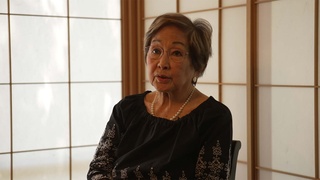Interviews
I’m a Japanese, Peruvian… who am I? (Spanish)
(Spanish) Happily, the new generations don’t ask any anymore. With a healthy envy, I see the young Nikkei, I take off my hat, and I am very happy they are like this, that they have less problems, and that the theme of identity is less problematic. Why? Because the idea of only one identity doesn’t prevail anymore, it doesn’t give them problems. And then, in relation to their body, they can show it: they’re postmodern people that have included the values of the citizens, of democracy, civil rights, sexual rights, and reproduction rights. They’re healthier people. And look how interesting, that in the light of freedom, they choose to stay in the Nikkei community. It’s truth that there are many marriages out of this Nikkei community. Not all are endogamous marriages--there are exogamous marriages--but most of them are endogenous and they stay, At least the marriage index between Nikkei in Peru is the majority, and in relation to young people. I’m talking about people less than 30 years of age.
Date: February 26, 2008
Location: Lima, Peru
Interviewer: Harumi Nako
Contributed by: Asociación Peruano Japonesa (APJ)









